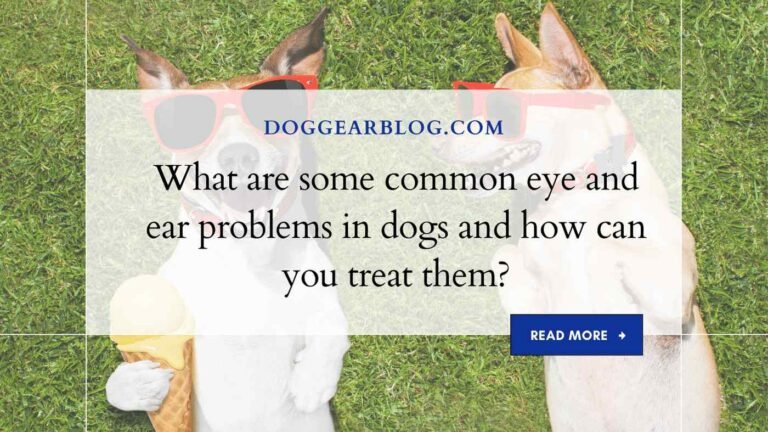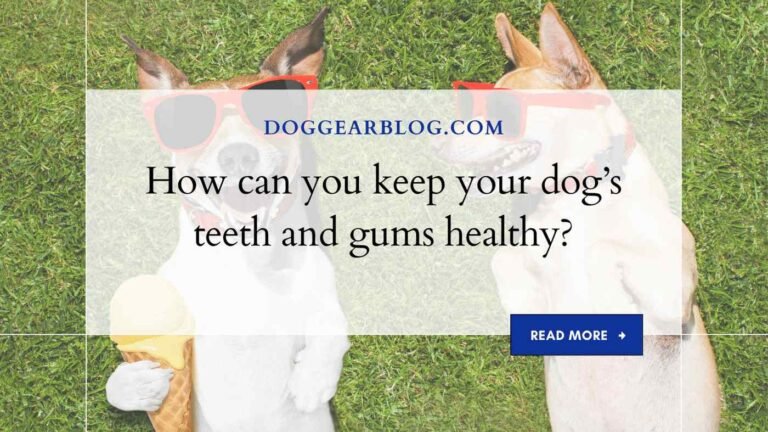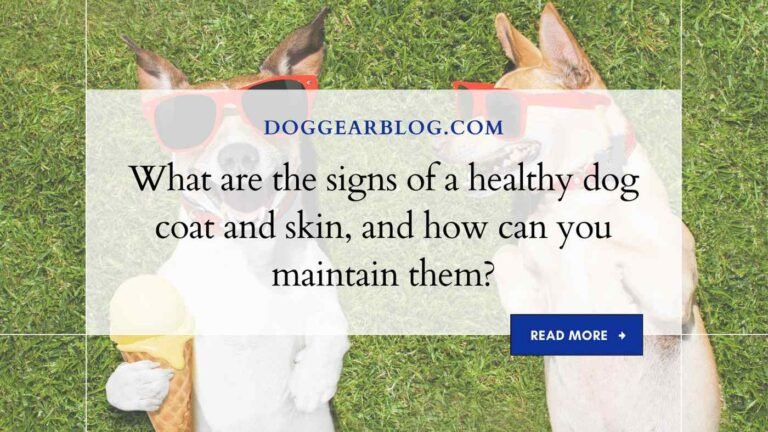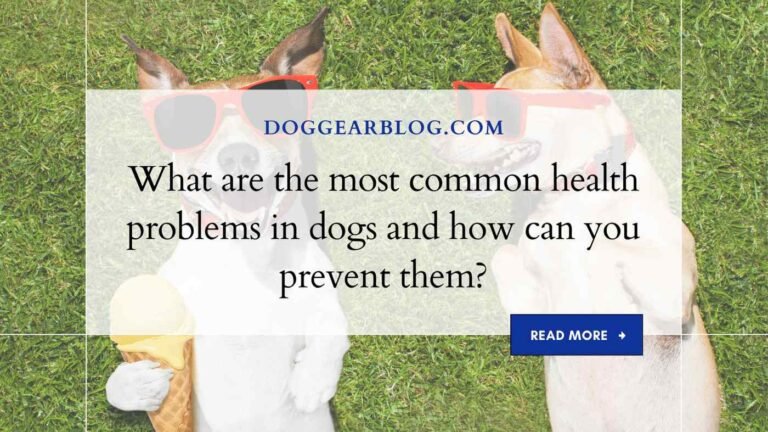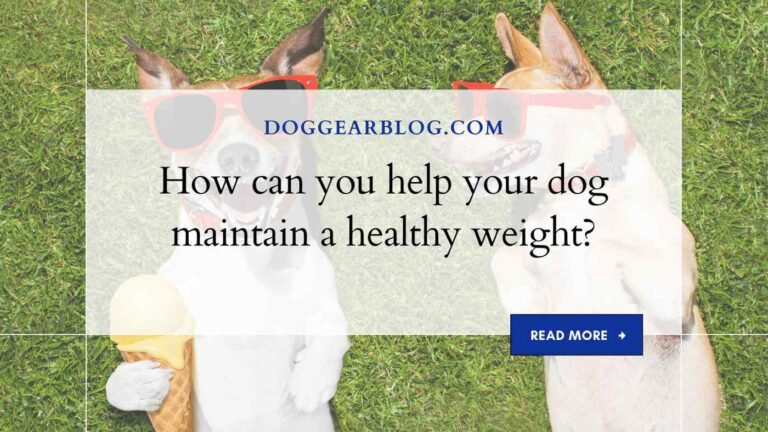How can you help your dog cope with anxiety and stress?
As pet owners, we love our dogs unconditionally. They’re always there for us with wagging tails and wet noses, but sometimes even they can suffer from anxiety and stress. Just like humans, dogs can feel overwhelmed with life’s challenges such as loud noises or being left alone for long periods of time.
Thankfully there are plenty of ways we can help them cope with these feelings so they can live a happy, healthy life. Read on to learn some tips and tricks you can use to support your furry friend when their nerves get the better of them!
What is anxiety and stress?

Anxiety and stress are mild to moderate mental health conditions that can impact dog owners and their pets. They are also known as “dog anxiety” or “pet stress,” respectively. Animal experts believe there is a strong connection between humans and their pets, so it’s important to understand anxiety and stress in animals if you want to help keep your furry friend healthy and happy.
The cause of anxiety and stress is unknown but may be caused by various factors including long-term care, separation from family or friends, fear of new environments or situations, physical illness or injury, household changes (such as the arrival of a new pet), child birth, vandalism or theft in the neighborhood, loud noise or angry dogs. In most cases, anxiety and stress develop gradually over time with owners not always recognizing the signs.
There is no cure for anxiety and stress in animals but treatments can help manage symptoms including providing supportive environment for pet owner/smithesonship interaction, modifying triggers if possible, using anxiolytics (medicines that reduce anxiety) such as benzodiazepines (temazepam [Restoril], lorazepam [Ativan], alprazolam [Xanax]) when needed and providing physical exercise.
Importance of proper nutrition for both people and animals has been emphasized lately; research shows that inadequate diets rich in proteins (poor quality proteins increase production of hormones like adrenalin which leads to anxiety) and complex carbohydrates may contribute to anxiety and stress in animals.
The causes of anxiety and stress in dogs
For dog owners, it can be difficult to know when something is wrong and what to do about it. Anxiety and stress are two common issues dogs face, and many don’t know how to treat them.
Here are some of the most common causes of anxiety and stress in dogs:
Separation from their family or human friends: Dogs who feel separated from those they love or worry about may become anxious or stressed. This can be caused by any number of things, like being left alone in a new place for the first time, moving to a new home, or traveling away from familiar surroundings.
When caring for a dog who is anxious or stressed due to separation, make sure you provide environmental enrichment – such as providing toys and treats – to keep him occupied and happy while you’re away.
Extended periods of being inactive: Many breeds of dogs are bred as working animals. This means that they were bred to have short bursts of energy followed by extended periods where they’re inactive (like when you’re at work).
Inactivity can cause anxiety in dogs if they’re not used to it. Make sure your dog has plenty of exercise and interaction – both during active periods and times when he’s inactive – to help him get his energy levels up and provide relief from anxiety symptoms.
Medical conditions: Many medical conditions can cause anxiety in dogs, including movement disorders like OCD (obsessive compulsive disorder), seizures, heart diseases, cancer, diabetes mellitus type II , and renal failure. If your dog is experiencing anxiety symptoms, it’s important to bring him in for a check-up with his veterinarian to rule out any medical causes.
Medications: Many medications – both human and veterinary – can cause anxiety in dogs. This includes anticancer drugs, pain medications, blood pressure medications, and more. It’s important to discuss any prescribed medications with your veterinarian so he or she can ensure that your dog is receiving the right dose and that the medication isn’t causing other side effects.
How can you help your dog cope with anxiety and stress?

One of the best things you can do for your dog is to help him cope with anxiety and stress. Dog anxiety is common, and there are many ways to help your dog feel less anxious.
Some tips to helping your dog cope with anxiety and stress include:
- ensuring that he has plenty of exercise – this will help him burn off energy andstress, and reduces his chances of becoming anxious or stressed in general.
- providing him with a safe space – provide your dog with a place where he can hide ifhe feels overwhelmed or anxious, such as a bedroom or playroom. This willhelp him feel secure and less likelyto become anxious or stressed.
- providing canine companionship – having another furry friend around can make all the Differencein helping your dog cope with anxiety and stress. Spending time together playingand cuddling will help reduce his levels of anxiety andstress.
What to do if your dog gets anxious or stressed
If your dog is naturally anxious or stressed, there are things you can do to help them. First, try to understand what is causing the anxiety or stress and why it is happening. Next, find ways to make your home environment more calming for your dog. Try to provide positive reinforcement for behavior that reduces anxiety or stress in your dog.
Causes of anxiety and stress in dogs
There are many potential causes of anxiety and stress in dogs, including trauma, genetics, environment, and mental health issues. However, the most common cause of anxiety and stress in dogs is simply being a dog. Dogs were designed to be pack animals and are sensitive to feelings of isolation or abandonment.
If your dog is experiencing significant anxiety or stress, there are a few things you can do to help them feel better:
1] Provide your dog with plenty of mental and physical exercise. This will help keep them happy and healthy minds and bodies.
2] Have regular conversations with your dog. This will help them understand what’s going on around them and make sure they’re not feeling left out or scared alone.
3] Avoid punishing your dog for behaving anxiously or stressed out. This only reinforces the behavior, which will only make things worse!
How to help your dog cope with anxiety and stress
Help your dog cope with anxiety and stress by providing plenty of dog-friendly activities and positive reinforcement. establish routines and stick to them, provide toys that are calming for your dog, make sure the home is comfortable and relaxing, be patient with your dog, and avoid punishment or dominance displays.
Conclusion
If you’re like most dog owners, you’ve probably been there: When the doorbell rings, your furry friend jumps and barks. Or maybe it’s just one little noise that puts her on edge — enough to startle her out of a sound sleep.
It can be difficult enough when things are calm, but if your dog is dealing with general anxiety or stress, life can quickly become overwhelming.
Here are some tips for helping your canine companion cope in difficult situations:
1) Stay close by during anxious moments. It’s easy to panic and run away when everything around us seems to be in chaos, but staying close will help reassure your pup. And chances are — even if everything outside looks normal — inside your pet might feel different. In those moments, it may be reassuring for both of you to know that you’re together and Aware.
2) Give treats and positive reinforcement throughout the day as a way of reducing anxiety levels overall (and especially during difficult times). Treats don’t only make dogs happy; they also help reinforce good behavior, which often builds confidence over time. Plus, since many breeds of dogs tend to beg (or scavenge) from their people at stressful times (a trait called “panting syndrome”), providing plenty of yummy rewards may go a long way toward stopping nuisance barking altogether!
3) Exercise regularly not only helps reduce anxiety in healthy dogs but can also bolster mood during sluggish periods – an added bonus if increased activity is needed due to stress! Interrupting lengthy bouts of inactive behavior with brief bursts of physical activity dramatically reduces symptoms associated with generalizedised anxiety disorder in animals [source: Davis LP et al., 2005]. However strenuous the exercise must be initially for owners – short daily walks work just as well!

